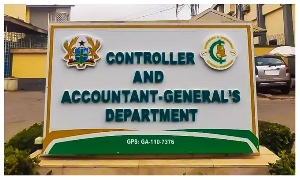By: Afrikanus Kofi Akosah Adusei
I distinctly remember travelling in the 1980s with my mom all the way to the capital city, a distance of 240 km, before we could make bookings and wait, only God knows how long, for our turn to make IDD phone calls. That was the dark old days of the Ghana Post and Telecommunications monopoly.
In 1995 Ghanaians had to scrape together more than US$1000 to buy their first connected mobile phones with very limited coverage since the country had only 70,000 traditional telephone lines. A few years later the GSM system introduced a chip that was going for around $200—a very rare commodity.
When the state-owned Ghana Telecom ventured into mobile phone service, their One Touch Network chip was a real luxury. It cost as much as the start-up capital for a business.
With liberalization came intense competition as each operator struggled to gain a bigger market share. Prices have fallen drastically since, with some networks offering starter packs with very wide coverage for as low as 1 Ghanaian Cedis (less than $1). Junior Secondary School graduates can now access their high school placement on their mobile phones.
Now in the comfort of our homes, offices and even on the streets, Ghanaians can communicate with their loved ones and business associates at far cheaper rates. I don’t think the social engineers are observing this.
We don’t travel hundreds of miles anymore to inform our relatives about deaths in the family and when the funeral is. . More importantly we have escaped from the unreliable government monopolised postal services to free our communications.
Speed and Efficiency
Nowadays some networks sometimes offer IDD calls for local call charges. Who would have thought that Ghana Telecom would one day offer free subscriptions to landlines when it used to take them more than six months to fix a subscribed line? In 2006 it was astounding to see the smallest network among the four players in the market being rated as the finest service provider. The largest network was ranked last and slapped with a 2.6 billion Ghanaian Cedis penalty by the National Communication Authority (NCA). Indeed, we are witnessing a revolution that attests to the superiority of the market.
In their desire to eke out a living for themselves and to improve upon their lives, Ghanaians started providing mobile phone services to the public along roadsides and street corners without the government telling them to do so. Telecom Companies responded with alacrity and supplied servers with suitable telephone handsets and packages.
In their desire to eke out a living for themselves and to improve upon their lives, Ghanaians started providing mobile phone services to the public along roadsides and street corners without the government telling them to do so. Telecom Companies responded with alacrity and supplied servers with suitable telephone handsets and packages. Spontaneous order, lucidly, at work. This has created a lot of jobs across the country especially for our copious unemployed youth. Although high barriers to business restrict these small businesses in moving from the informal to the formal sector, they are still finding ways to access credit and to expand their investments.
New Ideas
Innovation in the telecom industry is at its best. Businesses are cashing in to offer efficient and stress-free services to the public. Banks are offering cash transfer services through mobile phones in order to avoid queues. The Telecom companies have even diversified their services offering their customers the opportunity to transfer money on their cell phones to relatives, business associates and friends.
All the networks offer an amazing product, literally putting the internet in your pocket. It is a wireless internet service that comes in a memory stick. When slotted into a laptop or desktop, there is network coverage anywhere. Now I have no worries about spending a weekend at my farm without access to the net. I wonder how monopolistic Ghana Telecom alone could have been able to offer Ghanaians all these exciting services. They surely had their chance to do so over the years, but failed.
Let us imagine a mobile phone industry managed by the government as they run the Postal Service. Mobile phones would get more expensive day-in-day-out just as postal service charges are increased every year.
The pressure of competition ensures efficiency and cheaper prices, allowing consumers to save and invest elsewhere in the economy. Wherever there is perfect competition, service providers offer their consumers the best of services to prevent losing market share and going out of business. The consumer is always the winner in a competitive market.
To borrow an analogy from Dr. Daniel J. Mitchell: "There was a town with only one gas station. It offered shoddy services; it maintained inconvenient hours. Residents have to accept it because that was the only gas station in town. One day residents woke up to see that three more gas stations had sprung up. All of a sudden the consumer becomes an idol to be worshiped."
Mobile Phone Portability
Only last week the National Communication Authority introduced the Portable Switch System which has been in the pipeline since 2006. This system enables customers to switch from one network to another whenever they are dissatisfied with the services of a network without losing their numbers. Surely this makes the consumer a king.
The system is going to strengthen competition in the telecom sector and ensures more innovation and efficient services and products. Under no circumstance will service providers be able to skyjack service users.
Government Interference
Any time our ever-expanding government tries to interfere in the sector, the results have been terrible. But that is what happens when you live in a country where politicians and many intellectuals believe that government interference in the economy is the key to economic growth. In 1999, our Parliament was bent on arbitrarily reducing mobile phone charges without considering the cost of production. This could have scared off investors from putting capital into the sector, and we would not have been reaping all these benefits today.
Similarly, government’s monitoring, levying and surcharging of incoming international calls, which is a breach of International Telecom Laws, is also counterproductive. The government imposes a 19% per minute charge on all incoming international calls. The practise increase retail prices both locally and abroad.
We could have avoided the extravagant waste of the millions of dollars of taxpayers’ money that was used to pay-off Telecom Malaysia in 2005 after their management contract was terminated by the government. The whole process was handled so badly that it sent the wrong signal to the very investors we are trying to attract to Ghana.
The State's simultaneous role as referee and player is a scenario filled with conflict. In addition to the economic burden this poses for consumers and competitors in the industry, it does not make for an even playing field. The government typically favours itself.
It is prudent the government has now reduced its shares in the state-owned Ghana Telecom, now Vodafone, to only 20% . We stand to gain a lot if the rest could be put on the Ghana Stock Exchange.
Monopolies merely result in mediocre services and badgered consumers. Manned by corrupt and inefficient bureaucrats with strong political connections, the missing link here is the profit motive which encourages thrift, hard work and far-sighted decision making. When companies act from self-interest, spurred on by the profit motive, then society as a whole prospers.
Now if only our success on the telecom field direct us to liberalise other utilities like water and electricity. If not, we will continue to grope in the constant and ominous need of efficient and affordable services.
The Writer is the President of Africa Youth Peace Call, an independent, non-profit, research and educational organisation devoted to the principles of individual liberty, secure private property rights, free markets, the rule of law, limited government, and government non-interference in the economy.
Opinions of Sunday, 17 July 2011
Columnist: Adusei, Afrikanus Kofi Akosah














